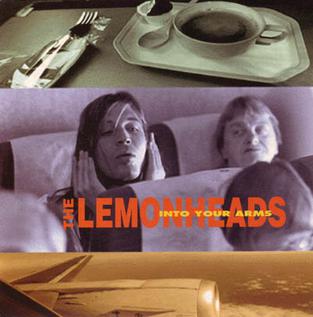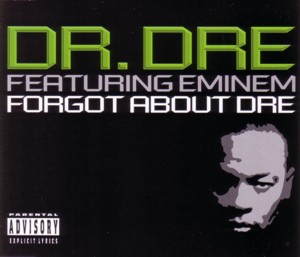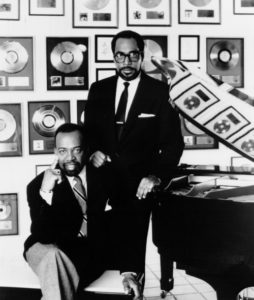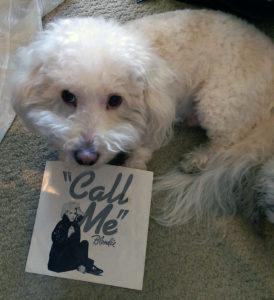
Inspired by the March 4 birthdays of Bobby Womack, Lemonheads’ Evan Dando, Jon Fratelli, Chris Rea, Miriam Makeba, and Brand Nubian’s Grand Puba; and the March 3 birthdays of the Searchers’ Mike Pender, Jennifer Warnes and Tone Loc.

Inspired by the March 4 birthdays of Bobby Womack, Lemonheads’ Evan Dando, Jon Fratelli, Chris Rea, Miriam Makeba, and Brand Nubian’s Grand Puba; and the March 3 birthdays of the Searchers’ Mike Pender, Jennifer Warnes and Tone Loc.

Dr. Dre’s album The Chronic is not on Spotify. Seems like those brothercluckers forgot about Dre.
Today’s playlist is inspired by the February 19 birthdays of Smokey Robinson, The English Beat/General Public’s Dave Wakeling, Gossip’s Beth Ditto, Dr. Dre, Lou Christie, Falco, and Fat Boys’ Prince Markie Dee.
Click here to like Tunes du Jour on Facebook.
Follow me on Twitter.
Follow me on Instagram.

On June 28, 1969, what was supposed to be a routine raid on a gay bar by the New York City police turned violent when patrons at the Stonewall Inn fought back, thus setting off the gay liberation movement. That pivotal moment was recognized one year later with a gathering in New York’s Greenwich Village, where the Stonewall Inn is located, and Gay Pride marches in Los Angeles and Chicago. The following year, Gay Pride marches sprang up in Boston, Dallas, Milwaukee, London, Paris, West Berlin and Stockholm. The Pride movement grew with each passing year, and it continues to expand to this day.
Tunes du Jour celebrates 50 years of Pride with today’s playlist. Be seen. Be heard. Be proud. Celebrate. Love.
Click here to like Tunes du Jour on Facebook.
Follow Tunes du Jour on Twitter.
Follow me on Instagram.

You may not know their names, but you know many of their songs. Individually, but more often as a team, Kenny Gamble and Leon Huff wrote and/or produced a lot of timeless classic songs in the soul music genre. They were the pre-eminent rhythm and blues architects of the first half of the 1970s, and their production style paved the way for disco, before that genre got watered down. Plenty of their records found their way to the top of the pop charts as well.
Today is Kenny Gamble’s 75th birthday. To celebrate, Tunes du Jour presents a playlist of twenty great Gamble and Huff sides.
Click here to like Tunes du Jour on Facebook!
Follow me on Twitter: @tunesdujour
Follow me on Instagram: @glennschwartz
June is LGBTQ+ Pride Month. Tune du Jour celebrates with this playlist consisting of two hundred songs by and/or about Ls, Gs, Bs, Ts and Qs. Happy Pride!
Click here to like Tunes du Jour on Facebook
Follow me on Twitter: @tunesdujour
Follow me on Instagram: @glennschwartz
In creating this LGBTQ series, I’ve purposefully stayed away from songs our community has adopted as anthems, such as “We Are Family” and “I Will Survive.” However, this time I’m including one such song, performed by Diana Ross and written by the same pair who wrote “We Are Family.” While the lyrics aren’t expressly gay, they knew what the chorus would mean to a core audience of Ms. Ross, thereby intentionally creating an anthem.
Elsewhere, we have a couple of bands from Georgia, a handful of artists from England, some mainstream acts and some obscure ones, all of whom fall somewhere under the LGBTQ umbrella or sing queer lyrical content.
[8tracks width=”300″ height=”250″ playops=”” url=”http://8tracks.com/mixes/8390853″]
Click here to like Tunes du Jour on Facebook!
Follow me on Twitter: @TunesDuJour
Follow me on Instagram: @GlennSchwartz
In October of 1975, the band Queen played for their manager, John Reid, a song they recently finished recording that they wanted to release as their next single. Reid told them the track would not get any airplay. He played it for another artist he managed, Elton John, who reportedly said “Are you mad? You’ll never get that on the radio!”
Queen stayed firm, not relenting when their record company begged them to at least edit the song down from its nearly six-minute duration.
To promote the song, the band was invited to play on England’s hugely successful Top of the Pops television program. They were unable to appear due to tour commitments, so they did something that wasn’t very common in 1975 – they filmed a videoclip. Top of the Pops aired the clip. As the song rose up the charts, the video was shown repeatedly. Soon other artists in the UK made videos for their records, which is why when MTV launched in the United States in 1981, many of the clips they aired were of UK acts.
The single, “Bohemian Rhapsody,” went to #1 in England in December of that year, where it stayed for nine weeks. It got knocked from the top spot by a song whose title consisted of a phrase used in “Bohemian Rhapsody” – ABBA’s “Mamma Mia.” “Bohemian Rhapsody” hit #1 again there in December of 1991, a few weeks after the death of the band’s lead singer and the song’s composer, Freddie Mercury.
In the United States, the song didn’t go to #1, but it did hit the top ten in 1976 and 1992.
For this week’s Throwback Thursday playlist, Tunes du Jour revisits 1976 (part I can be found here), kicking off with the Queen classic “Bohemian Rhapsody.”
Click here to like Tunes du Jour on Facebook!
Follow me on Twitter: @TunesDuJour
Follow me on Instagram: @GlennSchwartz

In 1979, Giorgio Moroder, famous mostly for his production work on Donna Summer records, composed the score for the film American Gigolo. He asked Stevie Nicks to sing the movie’s theme song, for which Moroder wrote the music, but she had to decline for contractual reasons. He next turned to Deborah Harry of Blondie.
Harry write the lyrics to the song that became “Call Me,” the second #1 single for her band. Of her experience with Moroder, she told Billboard “He’s very nice to work with, very easy, (but) I don’t think he has a lot of patience with people who fool around or don’t take what they do seriously. I think he’s very serious about what he does and he’s intense and he’s a perfectionist and he’s very talented, so I think that people who are less talented or less concentrated bore him quickly…you really have to pay attention.”
Said Moroder of working with Blondie, “There were always fights. I was supposed to do an album with them after that. We went to the studio, and the guitarist was fighting with the keyboard player. I called their manager and quit.”
Moroder did end up working with Deborah Harry again years later on another soundtrack song, producing “Rush Rush” from Scarface, and in 2004 remixed Blondie’s single “Good Boys.”
Tunes du Jour’s Throwback Thursday playlist this week spotlights the best of 1980, kicking off with Blondie’s “Call Me.”
Click here to like Tunes du Jour on Facebook!
Follow me on Twitter: @TunesDuJour
Follow me on Instagram: @GlennSchwartz
On May 31, President Obama issued a proclamation declaring June 2016 as African American Music Appreciation Month. The designation has actually been around since 1979, when President Carter commemorated the cultural and financial contributions of music made by African Americans at a reception at the White House. Back then it was Black Music Month, an idea conceived by music industry executive and radio personality Dyana Williams and her husband, Kenny Gamble.
You may not know Gamble’s name, but you know his music. The co-founder of Philadelphia International Records with Leon Huff, Gamble and his music partner have written and produced hits for Diana Ross & the Supremes and the Temptations, Dusty Springfield, the Jacksons, the O’Jays, Harold Melvin & the Blue Notes, Jerry Butler, Archie Bell and the Drells, the Three Degrees, Joe Simon, MFSB, Billy Paul, the Soul Survivors, Teddy Pendergrass, the Intruders, Lou Rawls, People’s Choice and the Jones Girls.
Tunes du Jour’s weekly dance party celebrates African American Music Appreciation Month with twenty dance floor packers, kicking off with a few of Gamble and Huff’s gems.
Click here to like Tunes du Jour on Facebook!
Follow me on Twitter: @TunesDuJour
Follow me on Instagram: @GlennSchwartz
Because there are millions of people who tell us we shouldn’t be who we are because it doesn’t conform to who they think we should be;
Because this “government of the people, by the people and for the people” often isn’t for all the people;
Because “All men are created equal” doesn’t include those in the LGBT populations per many politicians and their constituents;
Because our Pride parades are attended not only by LGBT peoples are their allies, but by “counter protestors” who shout hateful rhetoric through megaphones in the name of religion, as these self-proclaimed Christians have no place better to be on a Sunday morning;
Because LGBT youth represent 7% of the youth population, while LGBT homeless youth make up 40% of the homeless youth population;
Because LGB and questioning youth are four times more likely to attempt suicide than non-LGB youth;
Because queer youth need to see there are many people like them;
Because if we don’t celebrate who we are, then we tacitly say we are not worthy of celebration and things are fine as they are, neither of which is true;
Because there is strength in numbers;
Because in many parts of the world one is killed for the suspicion of being gay or lesbian;
Because in many parts of the world it is illegal and/or dangerous to show your LGBT pride;
Because nobody should live in fear of expressing their authentic self, including the asshats who attempt to intimidate us from doing so;
Because it is empowering to be able to express one’s sexuality or gender identity in a supportive environment;
Because coming together brings about positive change;
Because while marrying someone of the opposite gender has been legal throughout US history, the right to marry someone of the same gender is coming on just one year;
Because we still have a ways to get to before we reach true equality, and we’ve come too far to stop now;
Because it’s fun!;
Because diversity should be celebrated;
Because pride is respect for yourself and you deserve respect;
Because men in Speedos;
Because despite all of the bull feces, we persevere. That is why
We still need LGBT Pride Month celebrations.
Here is your expanded soundtrack:
Click here to like Tunes du Jour on Facebook!
Follow me on Twitter: @TunesDuJour
Follow me on Instagram: @GlennSchwartz